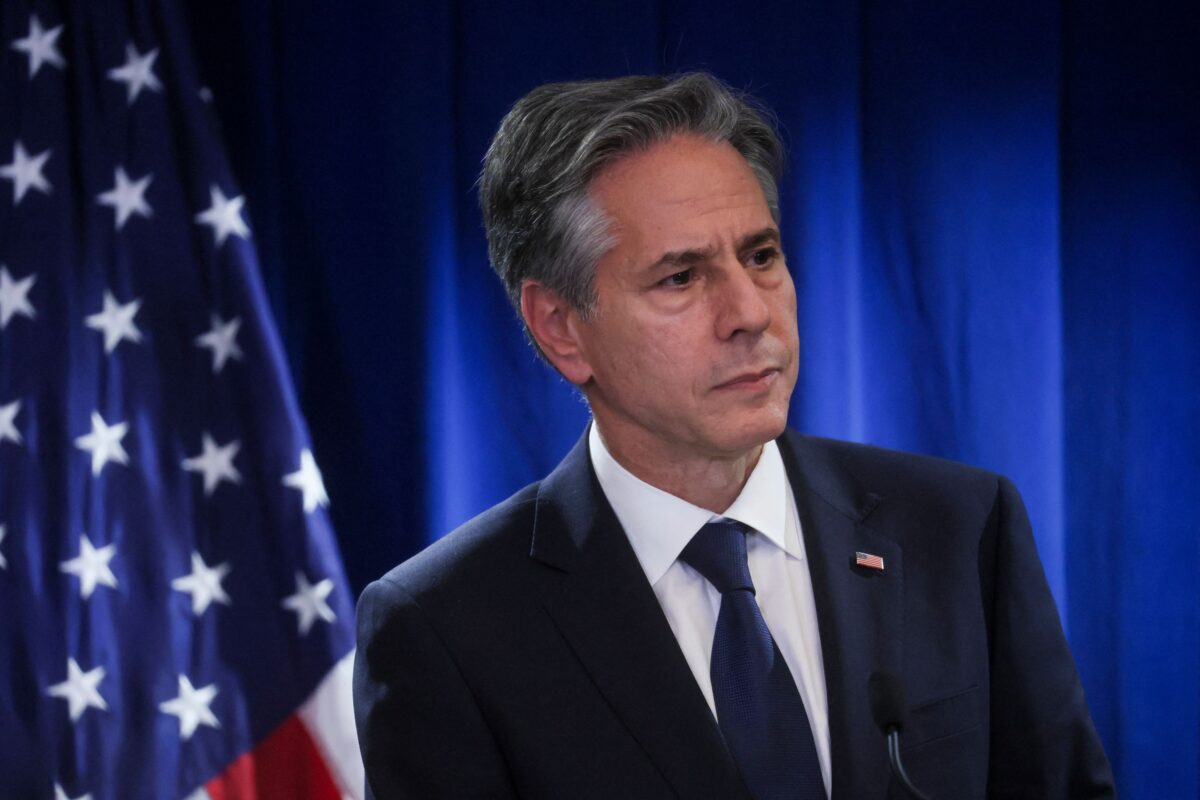


United States Secretary of State Anthony Blinken has held “candid and constructive” talks with Wang Yi, the director of the CCP Central Foreign Affairs Office, emphasizing the U.S.’s position on a number of issues, including peace and security across the Taiwan Strait.
Mr. Blinken spoke with Mr. Yi in Jakarta, Indonesia, on July 13 on the sidelines of a meeting of the Association of South-East Asian Nations (ASEAN) and partner countries. Mr. Wang was stepping in for foreign minister, Qin Gang, who was unavailable due to health reasons, according to Beijing’s foreign ministry.
The secretary of state also raised the issue of cyber attacks against 25 organizations, including at least two U.S. government agencies, by Beijing-based hackers.
The latest meeting follows earlier talks between Mr. Blinken and Mr. Wang last month that saw the U.S. secretary state the importance of managing diplomacy and competition between the two powers.
During that meeting, Mr. Wang accused the U.S. of having a “flawed perception” of China, which allegedly resulted in the state of relations, according to a statement from Beijing’s foreign ministry.
In a July 13 statement, a spokesperson for the U.S. State Department said the latest talks were used to advance U.S. interests and values.
“The secretary and Director Wang had candid and constructive discussions on a range of bilateral, regional, and global issues, including on areas of difference and potential areas of cooperation,” said spokesperson Matthew Miller.
“The secretary emphasized the importance of maintaining peace and stability across the Taiwan Strait.
“The secretary used the meeting to advance U.S. interests and values, to directly raise concerns shared by the United States and allies and partners regarding PRC actions, and advocate for progress on transnational challenges that affect people in the United States, the PRC, and around the world,” Mr. Miller said.
The meeting between Mr. Blinken and Mr. Wang follows a rare meeting at the Pentagon by Beijing’s ambassador to the U.S., Xie Feng, on July 12 after the US criticised Beijing for not engaging in military communications.
In a brief Pentagon statement, spokesperson Lt. Col Martin Meiners said Mr. Xie discussed defence relations and “a range of international and regional security issues” with Ely Ratner, a U.S. assistant secretary of defence.
“Ratner also underscored the Department’s commitment to maintaining open lines of military-to-military communication between the United States and the PRC,” Mr. Meiners said.
In May, Mr. Ratner said the CCP had “a lot of difficulty” engaging in communication with the U.S. military at every level, and refused numerous requests for meetings with U.S. Secretary of Defense Lloyd Austin, several regional commanders, and civilian Department of Defense employees.
Mr. Ratner emphasized that maintaining open lines of communication between the two militaries, whose forces frequently have tense encounters in the Indo-Pacific region, was paramount to ensuring peace and stability.
Last month, Mr. Wang said Beijing had “no room for compromise or concessions” in relation to the Taiwan issue while demanding the U.S. lift its sanctions against China.
In recent years, the U.S. government has imposed trade restrictions against Chinese companies and entities, including adding 28 Chinese entities to a blacklist in March for their alleged ties to the Iranian military.
Meanwhile, U.S. Deputy Secretary of Defense Siddharth Mohandas, said in May that increasing the interoperability of U.S. forces with those of allies like Japan and Australia would help deter China from launching a war of aggression against Taiwan even if the regime continues to stonewall calls for talks.
“We want to strengthen deterrence in the Indo-Pacific, and we believe we can do that by modernizing these alliances, by creating more capable allies,” Mr. Mohandas said.
The U.S. is required by law to provide Taiwan with the means to protect itself but has maintained its policy of “strategic ambiguity” over whether it would respond militarily to an attack on Taiwan, which Beijing has refused to rule out.
Andrew Thornebrooke, Frank Fang, and Reuters contributed to this report.
